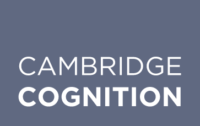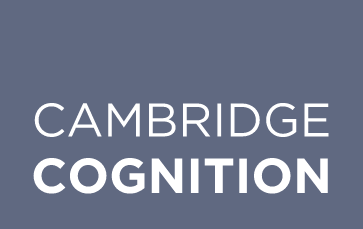Insights
What is cognition?
Cognition is essential for everyday functioning - here's why.
Summary
- Cognition refers to a range of mental processes relating to the acquisition, storage, manipulation, and retrieval of information.
- It underpins many daily activities, in health and disease, across the age span.
- Cognition can be separated into multiple distinct functions, dependent on particular brain circuits and neuromodulators.
- Computerized cognitive testing has been developed and validated as tapping into particular brain regions with many advantages over older ‘pen/paper’ methods.
- The ability to test, measure and monitor cognitive performance across the lifespan opens up the chance for patients to be identified earlier, access treatments faster, and stay healthy for longer, improving quality of life and reducing costs.
The Basics
What role does cognition have?
Cognition has a physical basis in the brain with over 100 billion nerve cells in a healthy human brain. Each of these can have up to 10,000 connections with other nerve cells called neurons. All of this makes it an incredibly complicated organ. In order to begin to understand the brain we sometimes rely on simplified scientific models, some of which have been developed using studies in rodents and non-human primates. These studies help us better understand certain parts of our cognition, such as how we learn language, and have also been the basis for many breakthroughs in treatments for common disorders of cognition such as Alzheimer’s disease.Cognition fundamentally controls our thoughts and behaviors and these are regulated by discrete brain circuits which are underpinned by a number of neurotransmitter systems. There are a number of brain chemicals which play major roles in regulating cognitive processes; including dopamine, noradrenaline (norepinephrine), serotonin, acetylcholine, glutamate and GABA. In order to better understand what drives certain behaviors, in both healthy and disease states, it is important to consider cognition and the underlying neurobiology that underpins these behaviors. Our distinct cognitive functions arise because of processes occurring within certain parts of our brain, but only some of these, end up entering our conscious awareness.
Summary of cognitive functions/domains
Cognition is not a unitary concept and various cognitive functions, or cognitive ‘domains’, responsible for regulation of specific behaviours or actions have been identified. These functions are often convoluted, and operate synergistically making it challenging to measure distinct cognitive processes. However, modern cognitive testing batteries such as CANTAB are able to tease apart distinct cognitive functions (see Figure 1), that have been shown to be dependent upon diverse neuronal circuitry.

Figure 1. Domain specificity of cognition and examples of component cognitive processes underlying these mechanisms
Whilst we can split cognition up into these constituent processes, mapping these directly onto the cortex is far more complex. Whilst studies have localized specific regions of the brain that are heavily involved in distinct cognitive functions, such as the inferior frontal gyrus for response inhibition, mapping finite areas of the brain for all aspects of cognition is problematic, as human variability and the underlying neurobiology of the cortex mean mapping distinct cortical regions to distinct cognitive processes is unfeasible. What we can do is think of the brain in terms of regions that have responsibility for more general concepts of cognition. Figure 2 demonstrates how the brain is split up into five distinct areas all of which have different principle responsibilities.

Figure 2. The neuroanatomy of the human brain
How it affects us and why it is important
Cognition is constantly changing and adapting to new information, regulating our behavior across our lifespan and is underpinned by both genetic and environmental factors. These environmental factors can even be before birth, such as foetal alcohol syndrome which is associated with severe impairment in cognition. Throughout infancy, childhood and adolescence our cognitive functions are constantly developing, and as we move into later adult life, as part of the normal aging process some of these functions begin to decline as neurons die and the mechanisms to replace these neurons becomes deficient. Understanding cognition is important not just for healthy cognitive development, but deficits occur in a number of neuropsychological disorders. Many of the biggest global health challenges are conditions associated with core cognitive problems; these deficits represent key therapeutic targets for early intervention. Being able to measure and monitor cognition has the potential to allow us to change lifestyles and ensure that our cognitive performance does not increase the rate of decline due to the normal aging process.
Examples of impairment
When we think about having a cognitive impairment, one of the most prevalent disorders that many will think of is dementia, however, cognitive impairments can be found in relation to many other disorders. For example damage to the brain from a head injury or trauma (called a traumatic brain injury or TBI) can lead to significant cognitive impairment, which sometimes manifests itself as a change in personality. An example of this is the case of Phineas Gage, he was a railway construction worker who had profuse damage to his frontal lobe (Figure 3), he managed to recover from this after many months but when he returned to his normal life his friends and family reported that his change in cognition has so profoundly altered his personality he was no longer the same person they knew before the accident.
Furthermore a better understanding of cognition and neural circuitry is also important in diseases such as obesity. Across the globe we have ready access to increasingly cheap foodstuffs, often with high-fat and high-sugar content which we are biologically pre-conditioned to seek out and consume. The World Health Organisation has highlighted that obesity is one of the leading causes of early death across the world as obesity leads to cardiovascular disease resulting in heart attacks, mechanical problems like osteoarthritis, and certain types of cancer. Patients with obesity often show cognitive problems in terms of regulating behavior, or ‘impulsivity’, and this has contributed to the ‘food addiction’ model in which obesity is considered in terms of dysfunctional brain reward circuitry. This model has directly suggested a number of novel treatment directions, which are currently being explored by pharmaceutical companies and academics alike.
Forms of measurement
Cognitive assessment refers to the objective measurement of distinct cognitive abilities, such as working memory, inhibition, cognitive flexibility, psychomotor speed and sustained attention. Cognition can be measured using a variety of methods, each varying in their level of objectivity and sensitivity. Initially cognitive assessment relied on pencil & paper tests which made it difficult to separate out different cognitive abilities and also made accurate recording problematic. But with the advent of computer technology various computerized cognitive testing batteries have been developed.
Computerized cognitive assessment is now the gold standard, with many advantages over more traditional tests. As well as teasing apart different cognitive functions, data collection can be automated, thus minimizing the potential for errors and administrator bias. Computers can also allow very precise recording of measures, such as highly accurate measurement of response latencies.
CANTAB tests are computerized cognitive assessments which benefit from being language and culture independent, using abstract visual stimuli and automated test administration to minimize subjectivity caused by cultural bias or administrator variance. As well as being an objective measure of cognition, CANTAB assessments have been shown to correspond directly to specific neural systems such as executive function, attention, episodic memory, and visual perception.
CANTAB tests allow research to look at the fundamental science behind cognition, understanding disorders of cognitive processes, evaluating treatments or interventions and monitoring the cognitive safety of new therapeutics which may lead into clinical practice, monitoring cognitive health and performance throughout the lifespan to optimize mental health throughout life.
You may also be interested in:
Author:


